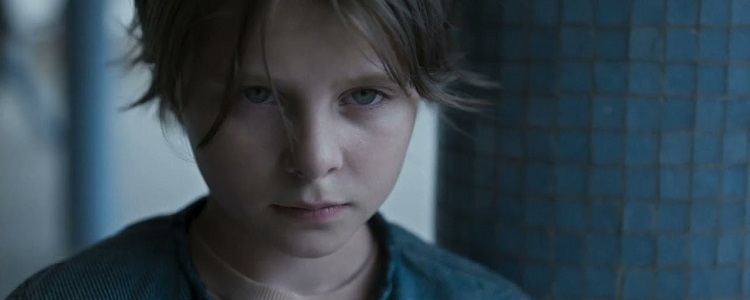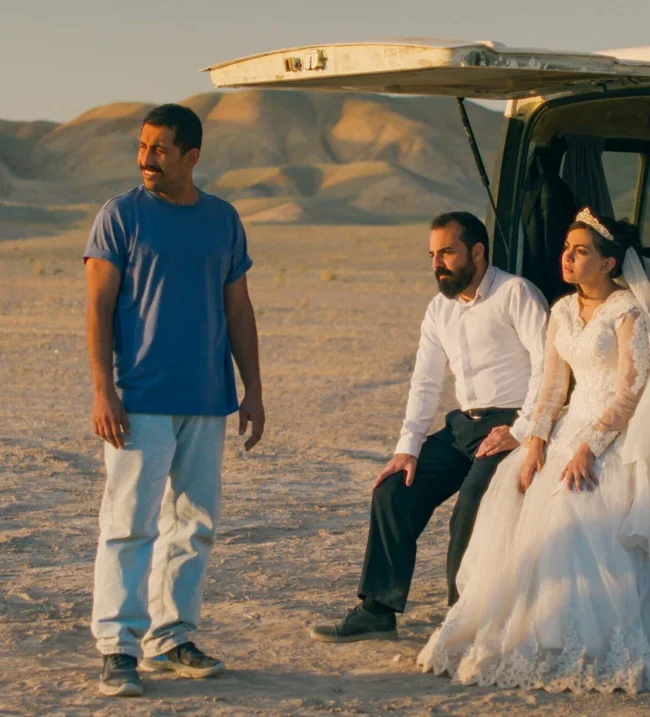PLAYGROUND (UN MONDE)

(Belgian director Laura Wendel’s Playground (Un Monde) opens February 11 at New York’s Film Forum. Ray Lobo has this film review of Playground (Un Monde). Like what you see here on Hammer to Nail? Why not pay just $1.00 per month via Patreon to help keep us going?
We are early into 2022 and already world cinema gives us a gem of a film by Belgian director Laura Wendel. Playground (Un Monde)—the French title a more befitting one, in my opinion—plunges the viewer into the world of grammar school children. We experience the physical and social terrors of this microworld through the lead character of Nora (Maya Vanderbeque). It is Nora’s first day of school, she is dropped off by her father (Karim Leklou), and already a palpable anxiety descends upon her. As she is escorted into the school by a staff member, she looks back at her father, a feeling of overwhelming abandonment running through her. Her anxiety is more than justified. Classroom settings offer brief respites from raucous hallways, a lunchroom full of slights and social exclusions, and a playground of horrors. Few places capture Thomas Hobbes’ description of the state of nature being poor, nasty, and brutish as accurately as the playground Nora is thrown into.
Nora is reticent and quiet at first. She does not eat her lunch. Slowly but surely, however, she gains confidence and a few friends. We see her slowly figuring things out. Her slow progress, however, gets thrown for a loop when she witnesses her slightly older brother Abel (Günter Duret) bullied by a small group of boys at the school. Nora wants to report the bullying to their father, but Abel makes her promise not to—a totally understandable decision on Abel’s part given his fear of further social exclusion. Nora must navigate difficult demands put on her by teachers, her father, and her brother. In addition, her love for her brother is put to the test when the stigmatization leveled upon him starts to transfer onto her.
Playground is Wendel’s first full-length feature. You will be hard-pressed to find a more assured directorial debut. Most of the movie is shot from the visual perspective of children, adults having to crouch into the frame so that their faces can be seen. Wendel has given us what is perhaps the most astounding cinema verité narrative ever on the lives of young children and their social lives. She has certainly reached the same elevated ground as her fellow countrymen the Dardenne brothers. I may even dare to say she has surpassed them with this debut. And of course, we must praise Maya Vanderbeque’s performance. She carries the film. I have difficulty thinking of a better performance by a child—or an adult for that matter. Her range, conveying a wide spectrum of emotions, from angst to sadness to focused intensity to deep empathy, had me spellbound. I am still at a loss for words as to how a child is capable of such a performance.
Earlier I mentioned that Playground is a microworld offering us a peek into the lives of children. By calling it a microworld, I am in no way implying that it is a world that does not transcend the boundaries of the school yard. Playground’s themes extend into the adult world, and we can appreciate how the adult world gets filtered down into the social interactions of children. The children in Playground discuss and try to make sense of issues revolving around gender, race, and even what constitutes a “freeloader”—political questions at the center of adult debates. We also experience how these children terrorize others, ostracize them, and find scapegoats through which to channel their frustrations—all of which are dynamics recognizable in adult social relations. And of course, bullying is at the center of Playground. What makes Playground fascinating is that we do not just get the perspective of the bullied victim; we also get the ripple effect of that bullying. If for a second you think that bullying and the fear of ostracism find their highest intensity in children’s lives, then you are wrong. One can think of bullies in our personal lives or even in the political arena. One can certainly identify instances in the adult world in which the fear of bullies–and especially fear of ostracism on the part of those who contemplate standing up to the bully’s tactics and lies—acts as a powerful motive for complicity and silence. Certain political parties come to mind.
– Ray Lobo (@RayLobo13)
Film Forum; Laura Wendel; Playground (Un Monde) movie review











